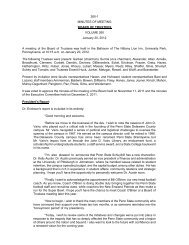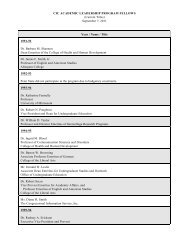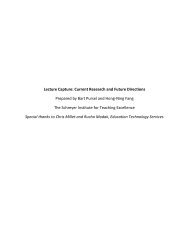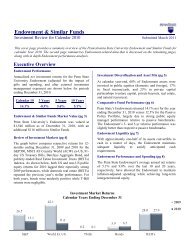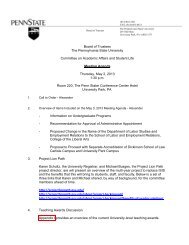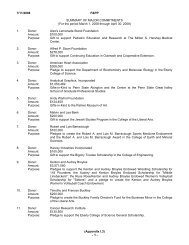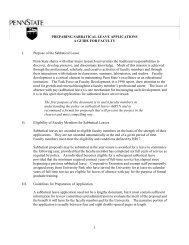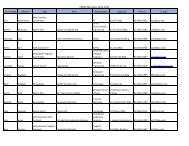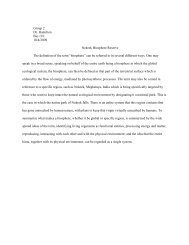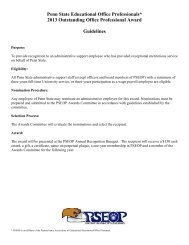Managing Disruptive Behavior - Penn State University
Managing Disruptive Behavior - Penn State University
Managing Disruptive Behavior - Penn State University
Create successful ePaper yourself
Turn your PDF publications into a flip-book with our unique Google optimized e-Paper software.
campus. Members of the <strong>University</strong> community should not hesitate to call if they or others feel<br />
threatened, if they suspect that someone has committed criminal acts or Code of Conduct violations,<br />
or if they have been instructed to do so by their supervisors or unit heads. <strong>University</strong> Police officers<br />
will arrive, investigate and carefully assess each situation. Follow up will occur with the Office of<br />
Judicial Affairs (<strong>Penn</strong> <strong>State</strong> students) or outside agencies (local and state police, if necessary, for<br />
non-<strong>Penn</strong> <strong>State</strong> students) to determine resolution.<br />
On occasion, a person’s disruptive behavior is motivated by emotional or psychological issues.<br />
<strong>University</strong> Police have been trained to assess these types of situations and when necessary, will<br />
contact a third party such as Counseling and Psychological Services or Can Help, a local community<br />
agency.<br />
Office of Judicial Affairs. The Office of Judicial Affairs may be notified by <strong>University</strong> personnel,<br />
students and/or <strong>University</strong> Police when it is believed that student misconduct has occurred. The<br />
Office of Judicial Affairs will make contact with each student named in the allegation to determine if a<br />
violation of the <strong>University</strong>’s Code of Conduct has occurred and what the appropriate response should<br />
be. Administrative sanctions range from disciplinary warning to expulsion. Judicial Affairs staff<br />
members also have the option to assign educational sanctions in addition to, or in lieu of,<br />
administrative sanctions. In cases where the student’s misconduct may have been motivated by<br />
emotional or psychological issues, Judicial Affairs staff will refer to the <strong>University</strong>’s protocol which can<br />
be found at www.sa.psu.edu/ja. In the event that a staff member wishes to refer a student to Judicial<br />
Affairs, contact can be made with the Judicial Affairs office at the campus. A staff member will assist<br />
in determining the appropriate procedure.<br />
Student Counseling Services. Arrangements for counseling services vary by campus. The<br />
counseling service may be contacted when it appears that an individual’s behavior is related to an<br />
emotional condition or disorder.<br />
At <strong>University</strong> Park, the Center for Counseling and Psychological Services (CAPS) provides a full<br />
array of individual and group services for individuals experiencing moderate difficulties to serious<br />
disturbance. Staffed by psychologists, psychiatric providers, social workers, and specialized<br />
counselors, CAPS is able to respond to the full range of emotional and psychological conditions.<br />
Crisis services are available at CAPS throughout regular business hours (8:00a.m.-5:00p.m.) and<br />
after hours through an agreement with the CAN HELP Crisis Service, a local community agency<br />
(1-800-643-5432). In the event that a faculty or staff member wishes to refer a student to CAPS,<br />
contact may be made with the office at 814-863-0395. Immediate crisis appointments are available<br />
or a student may be scheduled for an intake consultation. Depending on the nature of the presenting<br />
concerns, the student will be seen at CAPS until the situation is resolved or referred to the<br />
community for services befitting his or her needs. Additional information about CAPS is available at<br />
http://www.sa.psu.edu/caps/.<br />
Follow-Up<br />
At times, follow-up to a disruption will be necessary with members of the community who may or may<br />
not have witnessed the confrontation. Clearly communicating persistent behavior problems among<br />
unit faculty and staff is essential to consistent responses and prevention of misinformation through<br />
(4)




